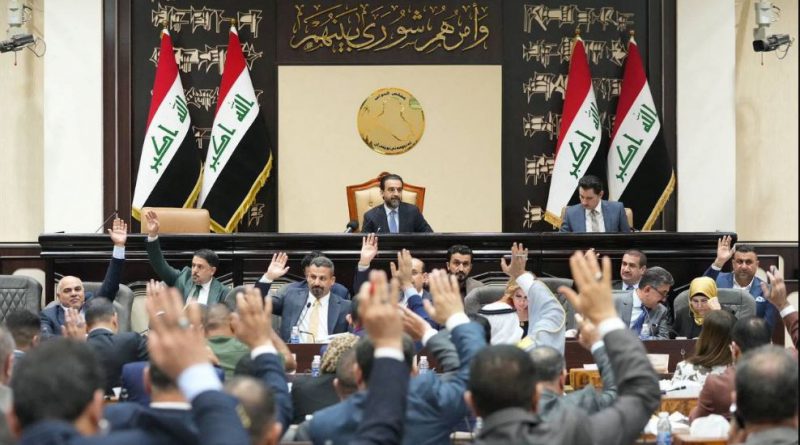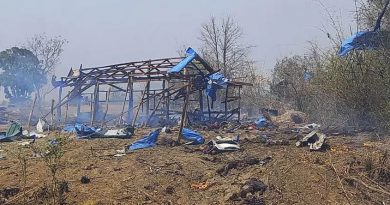Iraq approves record $153 bln budget including big public hiring
Baghdad (Reuters) – Iraq’s parliament on Monday approved a 2023 budget of 198.9 trillion dinars ($153 billion) that sets out record spending on a growing public wage bill and development projects to improve services and rebuild infrastructure ruined by neglect and war.
The budget deficit is estimated at a record 64.36 trillion Iraq dinars, more than double the last budget deficit in 2021, according to a budget document and lawmakers.
The budget is based on an oil price of $70 per barrel and projects oil exports at 3.5 million barrels per day (bpd), including 400,000 bpd from the semi-autonomous Kurdistan region, lawmakers said.
The budget sets the exchange rate for oil revenues in U.S. dollars at 1,300 dinars per dollar. It will remain valid through 2025, though it is subject to amendment, including to the oil price it uses given its near-total dependence on oil revenue.
The budget adds more than half a million new public sector workers, hiring that flies in the face of the recommendations of many observers who say Iraq should tighten fiscal policy.
Mohammed Nouri, a member of the parliament’s finance committee, told Reuters ahead of the session more than a million new workers were added, including contractors, daily employees and full-time staff.
Ahmed Tabaqchali, a visiting fellow at the London School of Economics Middle East Center, put the figure of new employees at about 600,000, which he said would raise the total cost of public wages and pensions to more than $58 billion (76 trln dinars).
“The more you increase this kind of spending, the more you increase your vulnerability. The oil price has to go higher and higher just to sustain spending which is crippling and will lead to more and more borrowing,” he said.
The International Monetary Fund in a May 31 note said the increasing public wage bill would contribute to mounting deficits and financial pressure, barring a big increase in oil prices.
To break even, Iraq required an oil price of $96 bpd, it said, while the price averaged $71.3 bpd in May.
“A significantly tighter fiscal policy is needed to strengthen resilience and reduce the government’s dependence on oil revenues while safeguarding critical social spending needs,” the IMF said.
Iraq’s budgets are supposed to be adopted before the beginning of the year they cover but are frequently delayed or not passed at all due to instability and political disputes.
The country has one of the fastest-growing populations in the world, projected to double from 43 million to about 80 million by 2050, while most of the economy is state-led, with high unemployment and frequent protests over various discontent.
The budget takes steps to address long-standing issues between Iraq and the semi-autonomous Kurdistan region, with its oil revenues set to be deposited in an account overseen by the Iraqi central bank.
Baghdad previously had no say over Kurdistan’s expenditure of oil revenues, with Kurdistan unilaterally exporting crude via Turkey despite Baghdad’s objections.
But Kurdish officials were forced to negotiate with Baghdad after Turkey halted crude exports in April when an international arbitration ruling deemed them unlawful.
Under an agreement signed between Baghdad and Erbil in April, Iraq’s state-run marketing company SOMO will have the authority to market and export crude oil produced from fields controlled by the Kurdish region.
The flows have not resumed despite Baghdad asking Ankara to do so on May 11.



